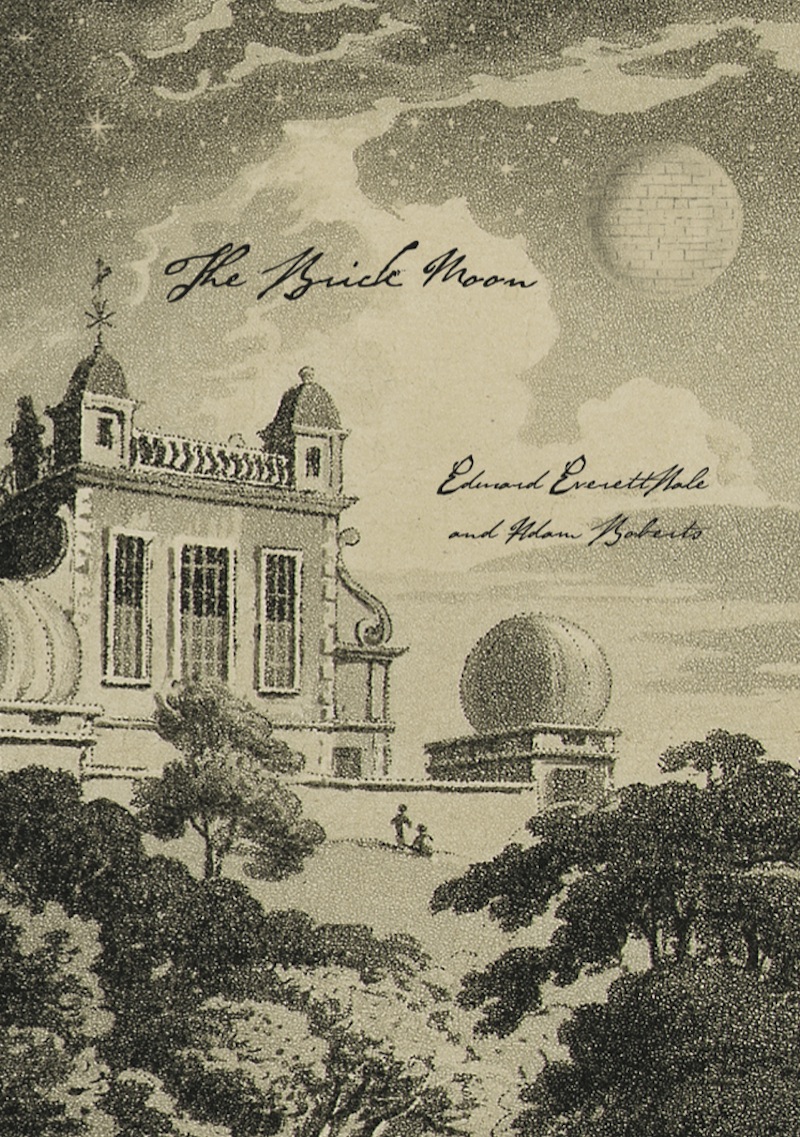Edward Everett Hale's Brick Moon
/ I've got a bit of a bonus installment for my column on SF History. I've got a limited amount of space that I've got to work with for Kirkus, and as such, I've had to blow past a couple of things. Fortunately, with Jurassic London's new release of The Brick Moon by Edward Everett Hale, I've had the opportunity to circle back and write about this particular novel.
The Brick Moon is the first science fiction story that uses the idea of an artificial satellite, and it's an excellent example of what science fiction is: extrapolation into the near future. In this instance the need for a navigational beacon in the skies. It's a cool premise, and in one fell swoop, Hale comes up with the idea for a satellite, communications satellite and space station. (Yes, Clarke came up with the idea as well. His invention is notable because it wasn't in SF, but a non-fiction speculation).
I've got a bit of a bonus installment for my column on SF History. I've got a limited amount of space that I've got to work with for Kirkus, and as such, I've had to blow past a couple of things. Fortunately, with Jurassic London's new release of The Brick Moon by Edward Everett Hale, I've had the opportunity to circle back and write about this particular novel.
The Brick Moon is the first science fiction story that uses the idea of an artificial satellite, and it's an excellent example of what science fiction is: extrapolation into the near future. In this instance the need for a navigational beacon in the skies. It's a cool premise, and in one fell swoop, Hale comes up with the idea for a satellite, communications satellite and space station. (Yes, Clarke came up with the idea as well. His invention is notable because it wasn't in SF, but a non-fiction speculation).
Read Edward Everett Hale's Brick Moon over on Pornokitsch. Here's the sources which I used:
- Out of this World: Science Fiction but not as you know it, by Mike Ashley. Ashley has a nice chunk of text devoted to this book, and it provides some helpful context.
- The Routledge Companion to Science Fiction, edited by Mark Bould, Andrew M. Butler, Adam Roberts and Sherryl Vint. There's a single mention in this book, but it's a juicy one that places it in a bit of context with similar works from around the same time in Arthur B. Evan's piece, 'Ninteenth-Century SF.)
- To A Distant Day, Chris Gainor. It's not often that I get to break out books on space history. This book is about the dawn of the rocket age, from the fantastic People's History of Spaceflight series. Hale gets a good mention here.
- Alternate Worlds, James Gunn. Gunn has a mention of The Brick Moon, with a little background.
- The Brick Moon, by Edward Everett Hale. This new edition from Jurassic London has an incredible historical essay on The Brick Moon, which helped provide some vital details to this piece from Richard Dunn and Marek Kukula.
- Explorers of the Infinite: Shapers of Science Fiction. Sam Moskowitz. Moskowitz is someone I'm reluctant to use, and I'm realizing that much of the perception of SF and its history is really framed by him. There's an entire essay about Hale, and it provides some good information, but nothing hugely specific.
- The High Frontier, Gerard K. O'Neill. There's a single mention of Hale in this book, about habitats in space.
- Edward Everett Hale, Harvard Square Library. This is an excellent short biography that provides some good detail on Hale's early life.
I would also be remiss if I didn't put something in that Jurassic London's edition is now available.
